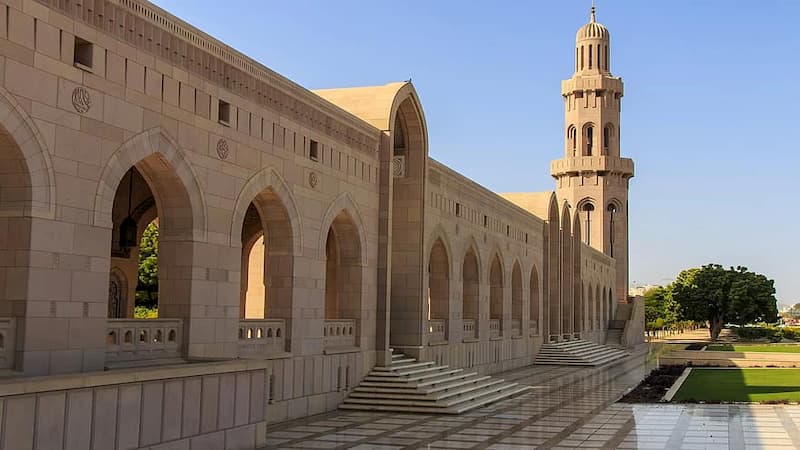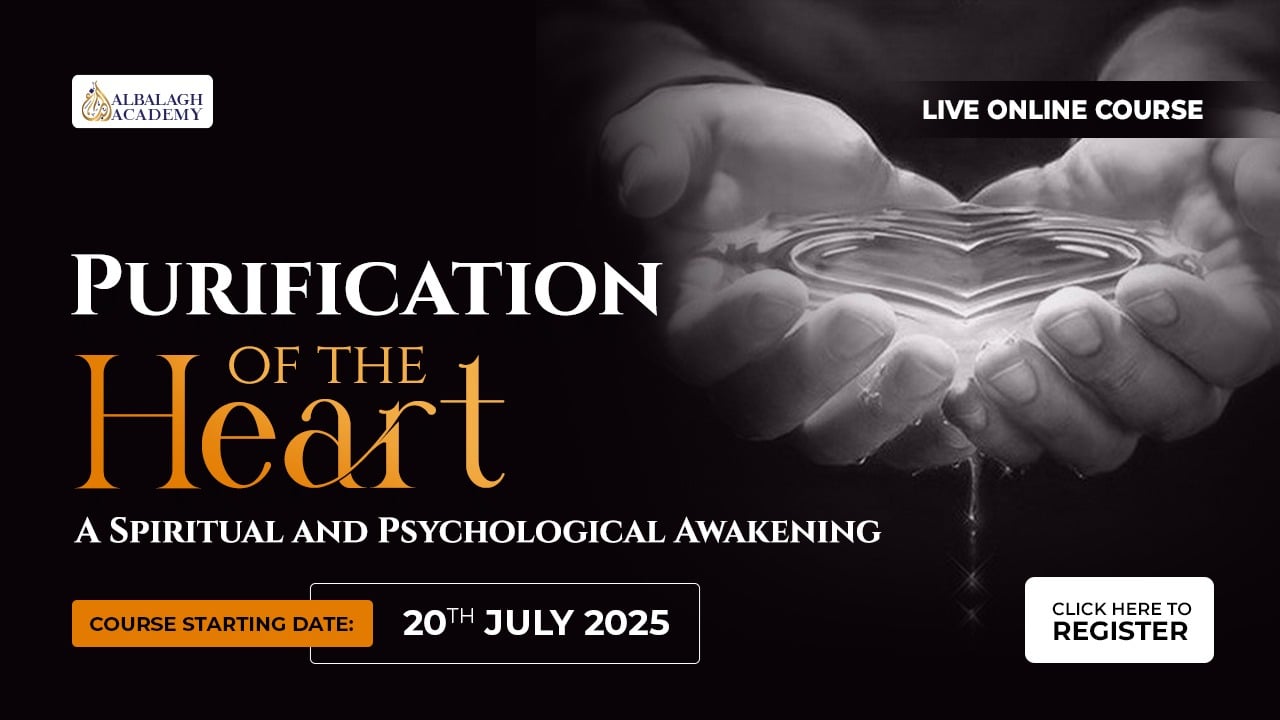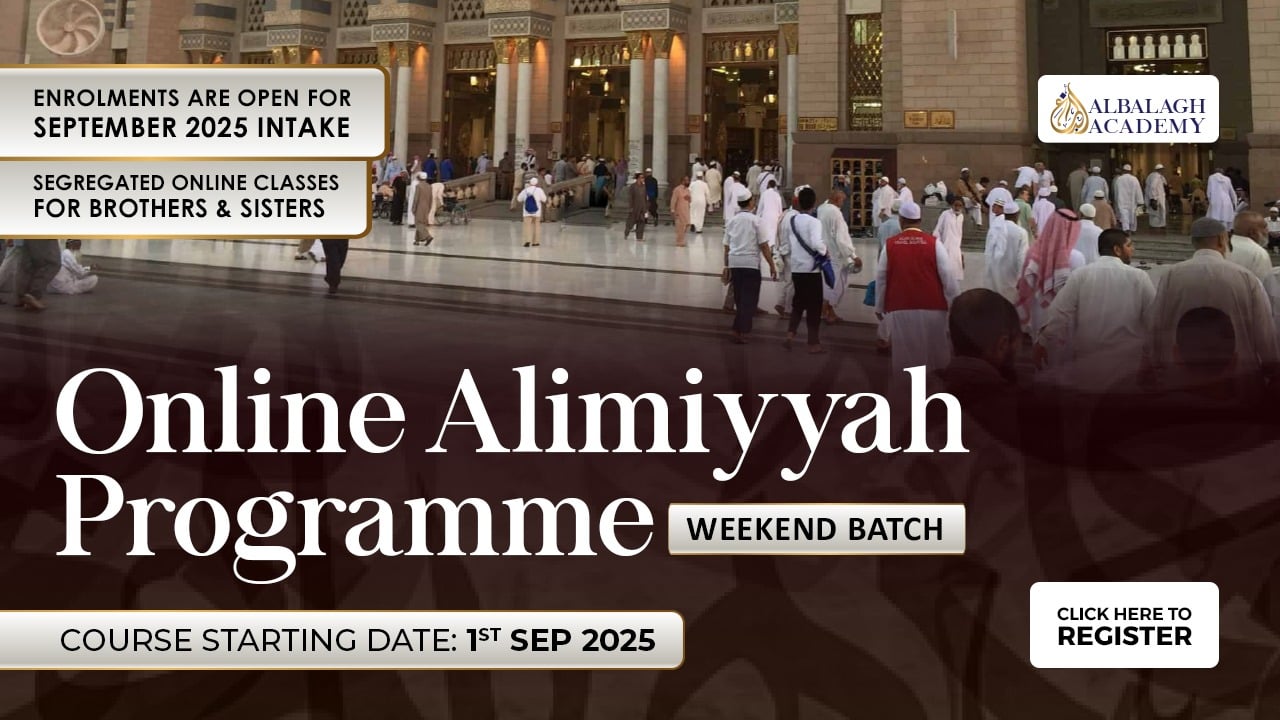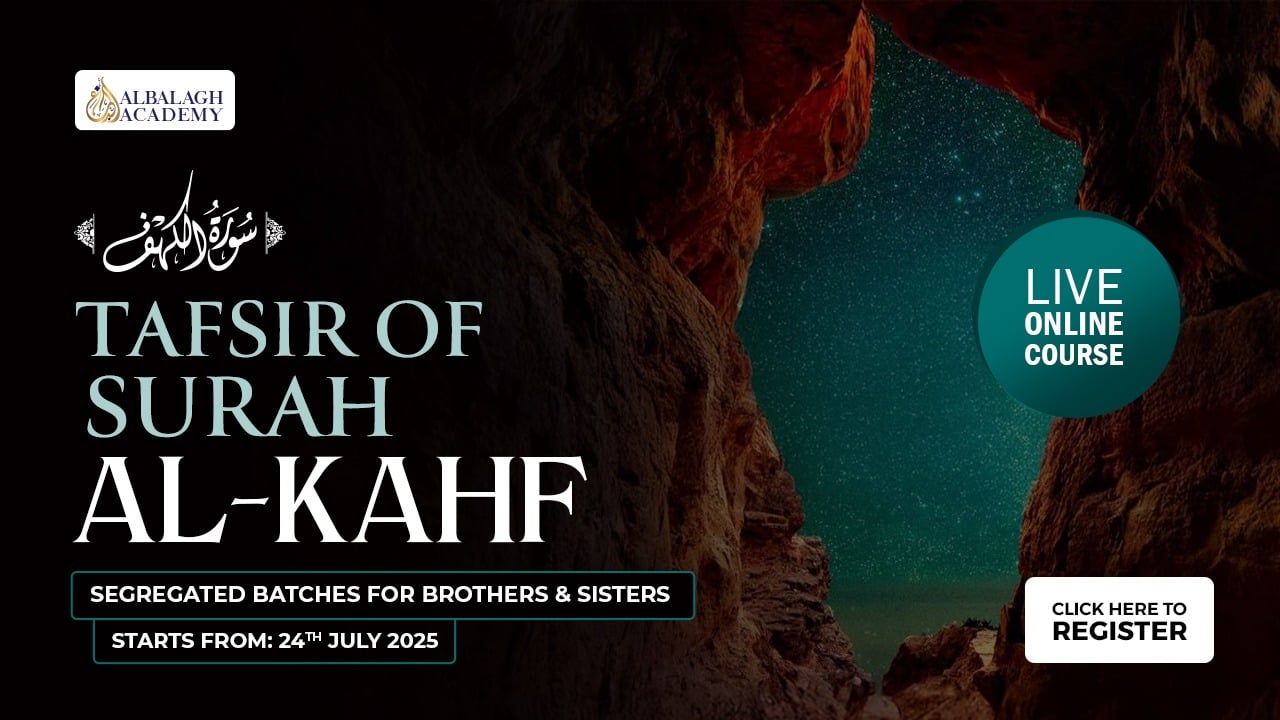2 Year Diploma in
Islamic Studies Programme
2-year diploma programme, exclusively designed for Professionals,
University Students, Graduates, Academics, and
Intellectuals to provide a solid foundation in Islamic Studies Programme
Check Timings / Enrol Now ▼
Batch 1
(Sisters Only)
Start Date: 1st September 2025
Day : Monday and Wednesday
Tentative Time (London): 11 AM – 1 PM
Tentative Time (New York): 6 AM – 8 AM
(Check time in your time zone)
Please Read the Refund Policy HERE! Before Enrolling.
Batch 2
(Sisters Only)
Start Date: 1st September 2025
Day : Monday and Wednesday
Tentative Time (London): 5 PM – 7 PM
Tentative Time (New York): 12 PM – 2 PM
(Check time in your time zone)
Please Read the Refund Policy HERE! Before Enrolling.
Batch 3
(Sisters Only)
Start Date: 3rd September 2025
Day : Wednesday and Thursday
Tentative Time (London): 3 PM – 5 PM
Tentative Time (New York): 10 AM – 12 PM
(Check time in your time zone)
Please Read the Refund Policy HERE! Before Enrolling.
Select Currency
Select Payment Option:
**Free Digital Certificate Included
Select Payment Option:
$254.67 $190.53)
$42.44
**Free Digital Certificate Included
Select Payment Option:
€233.89 €172.75)€39.98
**Free Digital Certificate Included

Select Currency
Select Payment Option:
£199.99 £149.99)
£33.33
**Free Digital Certificate Included
Select Payment Option:
$254.67 $190.53)
$42.44
**Free Digital Certificate Included
Select Payment Option:
€233.89 €172.75)€39.98
**Free Digital Certificate Included

Select Currency
Select Payment Option:
£199.99 £149.99)
£33.33
**Free Digital Certificate Included
Select Payment Option:
$254.67 $190.53)
$42.44
**Free Digital Certificate Included
Select Payment Option:
€233.89 €172.75)€39.98
**Free Digital Certificate Included

Disclaimer: Class duration will vary, with around 4 hours of instruction within the 6-hour schedule
Secure Your Spot with Assurance! 100% Money Back Guarantee for the First 4 Weeks!. Please Read the Refund Policy HERE! Before Enrolling.
About the Programme
Islamic Studies Programme is designed specifically and exclusively for professionals, university students, graduates, those in professional academic roles and anyone interested in understanding the fundamental rulings of Islam that every Muslim is obliged to follow. The purpose is to bridge the current gap that exists between traditional Muslim scholars and contemporary academics and professionals, as well as the gap that exists between classical Islamic sciences and contemporary academic studies and scientific research.
This programme is completely online and is part-time, divided into four academic levels covering 15 essential traditional Islamic sciences from beginning to intermediate level. The course is unique in the sense that it will incorporate relevant contemporary Islamic literature coupled with relevant contemporary academic social, historical philosophical and scientific studies. The course will be delivered using a personal developmental, unique skills-focused approach which will be guided through one-to-one mentorship.
This is a basic level course that will train academics, professionals and passionate learners to achieve a good and needed grasp and understanding of the dynamic nature of the Islamic sciences, with their associated theological and jurisprudential roots, in handling issues related to modern sciences. The course will provide general opinions from all sunnī schools of thought.
This is an excellent opportunity for interested individuals to understand the synergy of the Islamic tradition with modern sciences. Graduates will have an excellent opportunity to gain essential and vital knowledge having graduated with a basic level shahādah (certification) in several Islamic disciplines and classical texts from qualified traditional and renowned Muslim scholars and academics. They will also have the opportunity to be fast-tracked to our Al Balāgh Online ʿĀlimiyyah Programme on successful completion if they wish to further their studies and gain ijāza (authorisation).
AT A GLANCE
4 Semesters

Access to Mobile App
From £29.99/Month
Digital Certificate
Enroll Now
The next live cohort starts on 1st September 2025
Semester Fee:
Pay in Full: £199.99 £149.99
Pay In 6 Installments: £29.99 per month
Registration Deadline:
31st August 2025
Al Balagh Scholarship
AlBalagh Scholarship is available for learners who cannot afford the fee.
Islamic Studies Programme Syllabus
Level-1| 4 Semesters | 10+ Learning Streams | Part-Time | Flexible Duration
- Islamic Theology & ‘Aqīdah Studies
- Qur’ānic Studies
- Ḥadīth Studies
- Fiqh & Contemporary Fiqh Studies
- Tazkiyah Studies
- Tajwīd & Hifz
- Sīrah & Islamic History
COURSE
1
Fundemental of Islamic Creed
COURSE
2
Introduction to Islamic Theology & Philosophy
COURSE
1
Quran Translation & Tafseer (Essentials 1)
COURSE
2
Quran Translation & Tafseer (Essentials 2)
COURSE
3
Qur’ānic Studies Level 1
COURSE
1
Sharh al Arbaeen
COURSE
2
Al-Adab Al-Mufrad
COURSE
3
Hadith Studies Level 1
COURSE
1
Al Fiqh ul Muyassar (al-Ibadaat 1)
COURSE
2
Al Fiqh ul Muyassar (al-Ibadaat 2)
COURSE
3
Fiqh Studies - Level 1
COURSE
4
Contemporary Fiqh & Fatawa Level 1
COURSE
1
Tazkiyah Practical Level 1
COURSE
2
Tazkiyah Practical Level 2
COURSE
1
Introductory Tajwid & Hifz Part 1
COURSE
2
Introductory Tajwid & Hifz Part 2
COURSE
1
Al Sīrah al-Nabawiyyah Level-1
Programme Overview
The unique Online Islamic Studies Programme has been developed to address the important need to merge knowledge of the traditional Islamic sciences, which offers a centuries-old rich intellectual tradition, with current modern-day sciences. Universities can offer valuable, diverse academic approaches to some of these disciplines about Islam. However, they cannot replace an essential centuries-old tradition where knowledge is parted, coupled with spiritual and personal development. This spiritual development is one that transcends the study of books and seeks to connect with the Creator to produce an Islamic epistemological approach which is quite different to the approach found in western institutes of learning. To be part of this spiritual chain of knowledge, one that extends from one’s teachers all the way to our noble Prophet (PBUH) is something that only a select few have the opportunity to experience. A humbling experience through a process requiring them to sit at the feet of traditional scholars of knowledge, gaining the wisdom of classical texts through an approach that has been passed down successive generations.


Passing on the treasure of Traditional Islamic Sciences from our forefathers
The traditional Islamic sciences is a massive contribution of eminent scholars of the past that will guide us to the various contemporary developments relevant today and needs to be passed on to all the generations to come. These scholars had written thousands of books in the era when printing was not invented/accessible. To preserve this treasure that has been passed on to us by our forefathers, we should educate ourselves on it and pass it on to the next generations. Al balagh intends to pick the pearls of the Islamic sciences and encapsulate it into a fast-paced, simple and comprehensive programme for the utmost convenience of the students. To be part of this spiritual chain of knowledge, one that extends from one’s teachers all the way to our noble Prophet (PBUH) is something that only a few get the opportunity to experience. A humbling experience through a process of gaining wisdom of classical texts through an approach that has been passed down successive generations.

Addressing The Contemporary Issues
In order to address the contemporary issues of Islam we need to go back to the sources of our classical theology, substantive law, jurisprudence and ethics and tease out the nuances, and essential shariʿ principles that provide the guidance and framework to allow Islamic responses to technical questions. Living in the postmodern world, which poses new challenges, ideas, and ideologies, that may lead to confusion of a layman to understand the appropriate approach to tackle it. We provide you with the essential learning experience and skills required today, to deal with the contemporary issues. We need to build the minimum level of expertise in the area of theology, ʿilm al-kalām, tafsīr, ḥadīth, fiqh, and tārīkh. The vertical growth is where these disciplines have now diversified beyond just classical text, and into many other specialities making it intersect with sciences such as philosophy, epistemology, metaphysics, anthropology, politics and other areas of humanities and social sciences. Meeting the prevalent challenges requires a Muslim with an academic background, knowledge of general sciences or any skillset to embrace aptitude to deliver Islamic response that is both appropriate and informed, through a multidisciplinary approach. We aim to empower you with the knowledge and means that will give you the assurance and pride in your faith.



Learn Under the Guidance of the Heirs of the Prophet (PBUH)
The most important aspect of the whole programme will ensure that the beneficial traditional element of madrasa learning is maintained as much as possible. While seeking Islamic knowledge is necessary, knowing the reliability of the scholars on this learning journey is equally essential. Studying authentic Islamic knowledge under the expertise and guidance of well-qualified and experienced Shari’ah scholars is essential in the present era of ignorance and innovations. Hence, we ensure that all our scholars are well-trained and have gone through robust teaching under the tutelage of their teachers through a successive chain of traditional learning that extends to the Prophet (PBUH). This unique approach of our madāris builds a vital relationship of students with their scholars and teachers, which is essential for academic, spiritual and personal development. This traditional approach will be woven throughout the syllabus content and delivery style so that students have a virtual madrasa experience. This is an exciting opportunity for students to learn, develop and connect to a line of traditional ʿulama who have a chain of learning all the way to our beloved Prophet (PBUH). After successful completion of this programme students will receive formal certification. The goal is to produce Muslims who can contribute to their areas of expertise confidently, to bring about a meaningful impact and to respond to contemporary challenges. This will be one of the best investments that you can make for your life in this world and the next.

Programme Aims & Objectives
The Key Objectives of this Program are:
- Foundational understanding of classical Islamic Text:To develop a foundational understanding of classical Islamic literature focusing on chapters of the varied disciplines that serve importance and relevance to modern sciences. This will include a primary study and analyses of all relevant themes of classical Islamic theology, fiqh, uṣūl al-fiqh, tafsīr, ḥadīth and kalām literature.
- Foundational Knowledge in Contemporary Sciences and Islamic literature: To develop a basic understanding of relevant areas of modern sciences and other related contemporary sciences, whilst developing an academic approach to Islamic ethics and contemporary Islamic literature. Students will be able to grasp relevant facets of related contemporary tafsir, kalam, fiqh and uṣūl al-fiqh literature contextualised to anthropological, sociological and philosophical paradigms, that have a direct influence on Islam as practised today.
- Research, Analytical Skills and the Application of Islamic tradition to Conventional and Contemporary Issues: To develop excellent research skills and critical analyses skills in order to achieve ethical standards in both contemporary academic literature writing and delivery. Throughout the programme, students will research, learn, explore and examine concepts, theories and principles related to both the vertical and horizontal growth areas of Islamic sciences and its impact on conventional and contemporary issues. .
- Personal, Professional Spiritual and Academic Skills Development: – To develop and build the appropriate personal, professional, spiritual and academic skills which are essential for Muslims in the western world, as a requisite to resolve current issues in modern sciences from the perspective of the Islamic tradition. Students will get an opportunity to enhance their skills by joining Al Balagh skills-based courses throughout the specialisation. Al Balagh Skills Development Program is a unique program that will identify strengths and weaknesses and suggest a graded plan of action to address and improve personal, professional, spiritual and academic skills that matter. The key focus is to enhance spiritual self-reflection and emotional literacy and effective communication and presentation skills.
- Future leadership in the Islamic tradition: To develop a new generation of Muslim intellectuals who have expertise in different Islamic disciplines and can convey, advise and implement the Islamic tradition to issues related to the post-modern world through a multidisciplinary approach. As contributors to the future of the traditional Islamic sciences, they will be able to guide, identify, analyse and resolve current challenges in related sciences like theology, philosophy and anthropology, to revive the spirit of Islam in these fields and to enable and contribute to international academic literature, committees and allied industries.
- Networking, Career Guidance and Internship: To provide networking opportunities with international recognised Muslim scholars and subject experts, and professional and spiritual guidance. Our focus is to create a new generation of Muslim intellectual experts who can lead the Ummah and make a global impact by dedicating their lives to reviving the spirit of Islam.


ENTRY REQUIREMENT
The aspiring students should be either:
- 16+ years of age.
- Fluent in the English language.
This online programme is exclusively tailored for every Muslim, to provide them with an opportunity to develop foundational knowledge of Islamic Sciences, level by level, from the comfort of their homes. If you meet the entry requirements, then kindly apply directly or contact our admin team on +44 7397 903767 for any queries. Our support team will guide you ahead.
SCHEDULE
Diploma in Islamic Studies Programme is divided into 4 levels, each consisting of 4 semesters in every level.
Live Class Timing
The common live online classes will be held on weekdays for Sisters. There are multiple options in terms of timings and classes. You may select the batch based on your convenience and preference.
WEEKDAY (Batch 1)
Monday and Wednesday, 11 AM – 1 PM (London), 6 AM – 8 AM (New York)
WEEKDAY (Batch 2)
Monday and Wednesday, 5 PM – 7 PM (London), 12 PM – 2 PM (New York)
WEEKDAY (Batch 3)
Wednesday and Thursday, 3 PM – 5 PM (London), 10 AM – 12 PM (New York)
The programme will be delivered in a series of live online classes, tutorials, presentation based lectures, textbook-based traditional lectures, seminars, and workshops, all delivered live online. The recordings will be uploaded onto our Albalagh student’s learning portal (24/7 Accessibility from a web browser and Mobile App) for students to review and revise at their own pace and convenience.
This programme consists of 24 mandatory courses, broadly covering the Quranic studies, Hadith Studies, Islamic Fiqh, Islamic History Seerah, Tazkiya, Aqeedah, Islamic Theology, Philosophy and other essential Islamic subjects.
The programme will be taught extensively by qualified Shariah scholars and subject experts in English using online technology. The whole course is taken online and offers a flexible way to study while maintaining work and personal commitments. It consists of the following key approaches:
- Classical Texts: Students will study the classical texts of beginner level to gain familiarity with classical books on the various disciplines written by renowned Shariah scholars. Students will explore over 20+ classical textbooks during the programme.
- Presentation Based Lectures: Most courses will be delivered through presentations to support easier learning and to assure that students who learn visually can benefit.
- Live Online Sessions: There will be regular weekly live interactive online classes to discuss topics raised with case studies where appropriate. You are encouraged to discuss cases during the live interactive sessions, ask questions and share important points for feedback. This interactive session will be a key component of the learning process and the more you can engage with your lecturer, the more productive and enjoyable your learning will become.
- Video Recordings: The live session will be recorded, and you can access these recordings on the website. This will make it easy for students to revise and make notes after the live sessions.
- Online Course Material: In every course, your lecturer will suggest further reading material that you can review, print, read, and engage with, prior to the live session. This course material may be in the form of articles, case scenarios with questions, or recorded videos.
- Online Learning Activities and Online Assessments: There will be a variety of online learning activities, practical assignments, Module Assessments (graded or ungraded) to help you revise, reflect and gain a pragmatic approach and understanding to the subject.
- Discussion with Fellow Learners: Discussion with fellow learners is another important component of your development. In our course-specific WhatsApp groups, and our regular online Muzakarah sessions, students can review their course material and class with other learners, and share ideas with fellow students.
- Students Seminars: Regular participation in seminars will develop thinking, presentation and public speaking skills. Students will learn to prepare presentations and present via seminars, whilst presenting their arguments. This will be an excellent opportunity to receive constructive feedback.
- Flexibility in terms of Duration: Students have the flexibility to pace the months according to the commitment they can afford. Level 1 includes 4 Semesters that can be completed easily in two years, if one chooses the standard number of subjects in each semester. If you want to select more or less subjects in a semester as per your convenience then kindly contact us on our WhatsApp number: +44 7397 903767.
- Flexible Study Hours: Students are expected to spend an average of 6–7 hours per week to meet the study requirements. If students are facing time issues, then they can spend about 4–5 hours by selecting less courses per semester. It would increase the duration of the programme, but students can complete the programme without compromising their personal and professional commitments.
- Flexible Medium Of Learning: Online education has enabled pursuing almost every course and programme easy. Students can attend the live classes from the comfort of their home and begin their sacred journey of Islamic learning without compromising on other commitments.
- 24/7 Access to Video Recordings: Video recordings for every live session will be available within 48 hours on students’ course dashboard for revision and convenience. Students will get lifetime access to recordings.
- Mobile App: Students can get access to the course content on the go, using my albalagh mobile app and complete the coursework from anywhere and at any time.
- Exemption: Students with advanced knowledge or experience in the related subjects can apply for exemption for certain courses to select the next level courses in that subject.
We understand that most of our students have busy lives and managing family and professional commitments can be tough. Therefore, Al Balagh designed a flexible and structured learning model for passionate students like you to ensure that you can begin this sacred journey of foundational Islamic learning without compromising your other commitments. After successful enrollment, our academic support team will assess your profile and will draft a personalised learning plan based on it. Your mentor will guide and advise you on all course-related queries.
Testimonials
Frequently Asked Questions
How are the classes delivered?
Classes are delivered live online and include a mix of tutorials, presentation-based lectures, textbook-based traditional lectures, seminars, and workshops. Recordings of these sessions are made available on DUA student’s learning portal for 24/7 access from both web browsers and the Mobile App.
Is there any opportunity for direct interaction with scholars?
Yes, students have the opportunity to join Al Balagh's Exclusive annual residential camp. This optional component allows for spiritual development through direct interaction with world-renowned scholars.
What unique opportunities does the programme offer for spiritual development?
Our program features flagship Tazkiyah-centric modules, meticulously designed to suit the diverse backgrounds and learning styles of our students. These modules integrate a harmonious blend of traditional wisdom and contemporary methodologies, facilitating not only the acquisition of knowledge but also the cultivation of spiritual well-being. By offering personalized guidance and resources, we aim to nurture a profound understanding of spirituality, enabling students to embark on a transformative journey towards holistic Islamic education and personal enlightenment.
I can't take all my classes on weekends. Can I draw some classes from weekdays?
Apologetically No. Students must remain in their designated track, either Weekend or Weekday, and are not permitted to mix classes between the two tracks. However, it is possible to switch tracks entirely, meaning a student who initially enrolled in the weekday track but wishes to shift to the weekend track can do so. However, such a shift must be done as soon as possible. Additionally, students should be aware of the starting months for each track:
- Weekday tracks start in February and September of every year
- Weekend tracks start in November and May of every year
(However, please note that occasional changes may occur in the launch dates. For the most recent launch dates or any updates, please feel free to contact our team for assistance.)
If students intend to switch from one track to another, they must do so at a time when the new semester for the intended track is set to begin.
What are the exam categories on which my evaluation will be done?
Examinations can fall into 1 of 2 categories, depending on the discretion of the teacher and the subject type.
1) Self-Paced examinations: Students can start and finish the exam whenever they want within the set time frame. This means that you can take as much time as you need to complete the exam, or you can complete it quickly if you feel confident.
2) Timed examinations: Students shall be given a fixed amount of time to complete the exam. In timed examinations, students must manage their time carefully in order to complete all the questions within the allotted time frame. The exam is usually proctored and sufficient time shall be given for attempting the exam.
What details should students keep in mind specific to Assessments & Examinations?
Assessments 1 & 2:
Online and self-paced assessments for Assessments 1 and 2 are conducted without live written or live verbal tests. These assessments are administered through the student Learning Management System (LMS) by the examination and administrative team. Students typically have an average of 3-4 weeks after the release date to attempt the assessments.
Syllabus Demarcation:
- The syllabus for Assessment 1 covers material from Week 1 to Week 5, though this timeline may slightly vary according to instructor discretion.
- Similarly, the syllabus for Assessment 2 encompasses material from Week 6 to Week 10, with potential variations based on instructor discretion.
Percentage Weightage Allocation:
- In terms of weightage, Assessment 1 accounts for 15% of the overall grade,
- While Assessment 2 carries a weightage of 25%.
For Final Exams:
For Final Exams, the examinations will be conducted online, live, and proctored. These exams are administered through the student Learning Management System (LMS) by the examination and administrative team.
Students are allotted an average of 2-3 hours per exam paper to attempt their exams in a proctored environment.
It's important to note that the camera must be turned on for the entire duration of the exam. Therefore, students need to have access to a camera and adequate audio for the exam.
Syllabus Demarcation:
The syllabus for the Final Exam covers material from Week 11 until the Concluding Week of the semester.
Percentage Weightage Allocation:
In terms of weightage, the Final Exam carries a significant weight of 60% towards the overall grade.
Can I access the course content at any time?
The recordings of live sessions are uploaded onto our DUA student’s learning portal, providing 24/7 accessibility from both a web browser and the Al Balagh Academy Mobile App, enabling students to review and revise at their own pace and convenience.
Will the support materials be shared with me after enrollment?
There will be an orientation week organized in the first week of the Programme to make students comfortable with the LMS platform, programme structure, schedule, instructors and peers. All support materials like the LMS Guide, Student Guidelines Handbook etc will be uploaded by the admins on the LMS for easier understanding.
What are the exam categories on which my evaluation will be done?
Upon successful enrollment, you will get access to DUA; Al Balagh Academy’s advanced online learning portal. Login details and important contact information will be provided to your registered email address. We recommend joining classes from a laptop/desktop computer for better visibility and learning experience.
Student access is of 2 types:
- Main class/batch access:
- Students get access to their batch's main class on the LMS within 24 - 72 hours.
- This section of the LMS includes various policies and guidelines essential for every student to read through, understand, and acknowledge.
- Module access:
- The second access type is for the specific modules for the semester that students have registered for.
- Every module will have its own access point, where class links, session summaries, notes, presentations, etc., will be uploaded as the weeks go by. This access is given after the orientation session week concludes.
Is there a mobile app for accessing my courses ?
Absolutely! We've got you covered for on-the-go learning with our newly updated mobile app. Gain maximum flexibility in your learning journey by accessing your courses anytime, anywhere. Simply click on the links below to download the latest Al Balagh Academy App tailored to your device:
- For Android users: Download from the Google Play Store - https://play.google.com/store/apps/details?id=app.dua.albalaghacademy.org&hl=en_IN
- For iOS users: Download from the App Store - https://apps.apple.com/in/app/darul-uloom-albalagh/id6450550064
Dive into a world of convenient and accessible learning today!
Do we have WhatsApp groups for communication?
Certainly! We've established a dedicated Student Support Group on WhatsApp to serve as your primary communication channel throughout your journey with us.
Following your Orientation week and completion of class selection, you'll be automatically added to your respective Module-wise "Groups" on the DUA Learning Portal. These groups will provide you with invaluable support and connectivity with fellow students, ensuring a smooth and enriching learning experience.
How To Get General Help?
1) If you have questions about your ongoing classes, assessment matters, or IT/Technical Issues, please reach out to us through your respective Support groups only. (Please Note: It may take 2 - 3 days for our team to resolve the issue due to the volume of students.)
2) If you're interested in joining a different course/programme and need information, please get in touch with our admission team:
Email support: [email protected]
WhatsApp Support: http://wa.me/447946835804
How can I apply for the Al Balagh Scholarship?
Will I get notification for live sessions?
You will be able to view all course wise live session details including joining links on your DUA Portal calendar(students are advised to join classes from the LMS directly). If you find any difficulty with the link/calendar students are advised to contact their respective support groups, where our dedicated support team will ensure that their problem gets resolved at the earliest.
How are the classes delivered?
Classes are delivered live online and include a mix of tutorials, presentation-based lectures, textbook-based traditional lectures, seminars, and workshops. Recordings of these sessions are made available on DUA student’s learning portal for 24/7 access from both web browsers and the Mobile App.
Is there any opportunity for direct interaction with scholars?
Yes, students have the opportunity to join Al Balagh's Exclusive annual residential camp. This optional component allows for spiritual development through direct interaction with world-renowned scholars.
What unique opportunities does the programme offer for spiritual development?
Our program features flagship Tazkiyah-centric modules, meticulously designed to suit the diverse backgrounds and learning styles of our students. These modules integrate a harmonious blend of traditional wisdom and contemporary methodologies, facilitating not only the acquisition of knowledge but also the cultivation of spiritual well-being. By offering personalized guidance and resources, we aim to nurture a profound understanding of spirituality, enabling students to embark on a transformative journey towards holistic Islamic education and personal enlightenment.
I can't take all my classes on weekends. Can I draw some classes from weekdays?
Apologetically No. Students must remain in their designated track, either Weekend or Weekday, and are not permitted to mix classes between the two tracks. However, it is possible to switch tracks entirely, meaning a student who initially enrolled in the weekday track but wishes to shift to the weekend track can do so. However, such a shift must be done as soon as possible. Additionally, students should be aware of the starting months for each track:
- Weekday tracks start in February and September of every year
- Weekend tracks start in November and May of every year
(However, please note that occasional changes may occur in the launch dates. For the most recent launch dates or any updates, please feel free to contact our team for assistance.)
If students intend to switch from one track to another, they must do so at a time when the new semester for the intended track is set to begin.
What are the exam categories on which my evaluation will be done?
Examinations can fall into 1 of 2 categories, depending on the discretion of the teacher and the subject type.
1) Self-Paced examinations: Students can start and finish the exam whenever they want within the set time frame. This means that you can take as much time as you need to complete the exam, or you can complete it quickly if you feel confident.
2) Timed examinations: Students shall be given a fixed amount of time to complete the exam. In timed examinations, students must manage their time carefully in order to complete all the questions within the allotted time frame. The exam is usually proctored and sufficient time shall be given for attempting the exam.
What details should students keep in mind specific to Assessments & Examinations?
Assessments 1 & 2:
Online and self-paced assessments for Assessments 1 and 2 are conducted without live written or live verbal tests. These assessments are administered through the student Learning Management System (LMS) by the examination and administrative team. Students typically have an average of 3-4 weeks after the release date to attempt the assessments.
Syllabus Demarcation:
- The syllabus for Assessment 1 covers material from Week 1 to Week 5, though this timeline may slightly vary according to instructor discretion.
- Similarly, the syllabus for Assessment 2 encompasses material from Week 6 to Week 10, with potential variations based on instructor discretion.
Percentage Weightage Allocation:
- In terms of weightage, Assessment 1 accounts for 15% of the overall grade,
- While Assessment 2 carries a weightage of 25%.
For Final Exams:
For Final Exams, the examinations will be conducted online, live, and proctored. These exams are administered through the student Learning Management System (LMS) by the examination and administrative team.
Students are allotted an average of 2-3 hours per exam paper to attempt their exams in a proctored environment.
It's important to note that the camera must be turned on for the entire duration of the exam. Therefore, students need to have access to a camera and adequate audio for the exam.
Syllabus Demarcation:
The syllabus for the Final Exam covers material from Week 11 until the Concluding Week of the semester.
Percentage Weightage Allocation:
In terms of weightage, the Final Exam carries a significant weight of 60% towards the overall grade.
Can I access the course content at any time?
The recordings of live sessions are uploaded onto our DUA student’s learning portal, providing 24/7 accessibility from both a web browser and the Al Balagh Academy Mobile App, enabling students to review and revise at their own pace and convenience.
Will the support materials be shared with me after enrollment?
There will be an orientation week organized in the first week of the Programme to make students comfortable with the LMS platform, programme structure, schedule, instructors and peers. All support materials like the LMS Guide, Student Guidelines Handbook etc will be uploaded by the admins on the LMS for easier understanding.
When will I have access to the learning portal?
Upon successful enrollment, you will get access to DUA, Al Balagh Academy’s advanced online learning portal. Login details and important contact information will be provided to your registered email address. We recommend joining classes from a laptop/desktop computer for better visibility and learning experience.
Student access is of 2 types:
- Main class/batch access:
- Students get access to their batch's main class on the LMS within 24 - 72 hours.
- This section of the LMS includes various policies and guidelines essential for every student to read through, understand, and acknowledge.
- Module access:
- The second access type is for the specific modules for the semester that students have registered for.
- Every module will have its own access point, where class links, session summaries, notes, presentations, etc., will be uploaded as the weeks go by. This access is given after the orientation session week concludes.
Is there a mobile app for accessing my courses ?
Absolutely! We've got you covered for on-the-go learning with our newly updated mobile app. Gain maximum flexibility in your learning journey by accessing your courses anytime, anywhere. Simply click on the links below to download the latest Al Balagh Academy App tailored to your device:
- For Android users: Download from the Google Play Store - https://play.google.com/store/apps/details?id=app.dua.albalaghacademy.org&hl=en_IN
- For iOS users: Download from the App Store - https://apps.apple.com/in/app/darul-uloom-albalagh/id6450550064
Dive into a world of convenient and accessible learning today!
Do we have WhatsApp groups for communication?
Certainly! We've established a dedicated Student Support Group on WhatsApp to serve as your primary communication channel throughout your journey with us.
Following your Orientation week and completion of class selection, you'll be automatically added to your respective Module-wise "Groups" on the DUA Learning Portal. These groups will provide you with invaluable support and connectivity with fellow students, ensuring a smooth and enriching learning experience.
How To Get General Help?
1) If you have questions about your ongoing classes, assessment matters, or IT/Technical Issues, please reach out to us through your respective Support groups only. (Please Note: It may take 2 - 3 days for our team to resolve the issue due to the volume of students.)
2) If you're interested in joining a different course/programme and need information, please get in touch with our admission team:
Email support: [email protected]
WhatsApp Support: http://wa.me/447946835804
How can I apply for the Al Balagh Scholarship?
Al Balagh Academy values seekers of knowledge more than anything. Please visit here to apply for a scholarship. Our team will assess your application and respond in 2 - 3 working days.
Will I get notification for live sessions?
You will be able to view all course wise live session details including joining links on your DUA Portal calendar(students are advised to join classes from the LMS directly). If you find any difficulty with the link/calendar students are advised to contact their respective support groups, where our dedicated support team will ensure that their problem gets resolved at the earliest.






